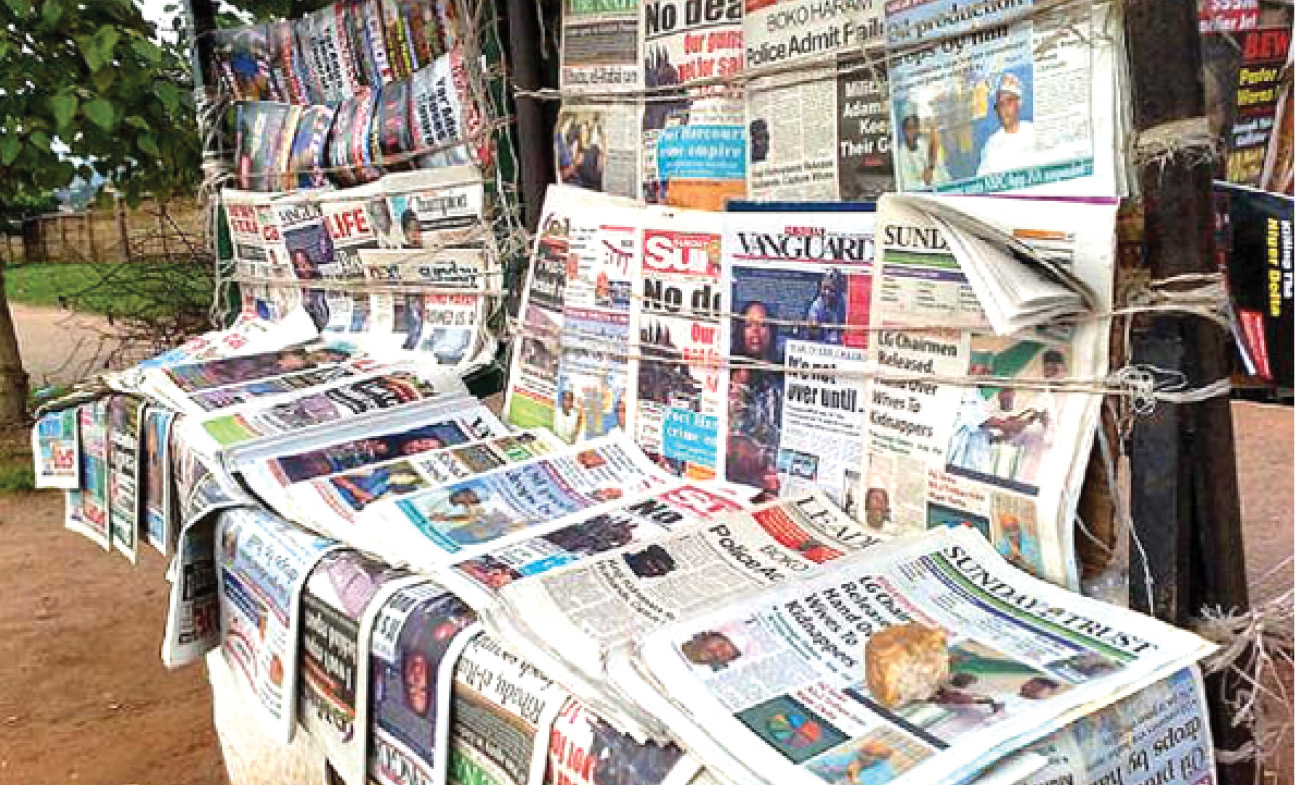The blast of the whistle? Yep. INEC has officially flagged off the campaigns for the 2019 general elections. All things being equal, we are in for exciting times. No dull moments from this day forward.
These are challenging times for editors and their reporters too as I pointed out in this column two months ago. Political reporting can be exciting. Electioneering campaign times bring out the best and the worst in men and women. At times like these, we know those who can turn the stars into small torch lights. We know those who can end our permanent frustrations with NEPA or disco or whatever name by which our guardian angels of electricity are called. Expect someone to tell us he can make the sun stay permanently over our country – provided we elect him president.
I am a connoisseur of great promises that drop like pearls from the mouths of our politicians. They make them, not because they believe what they say, but because great promises are simply great and play well with the public. In my experience, those who offer us the rosiest promises are those who, somehow, all things not being equal, miss the great prize. Their promises are never put to the test. Just as well.
Our current election season is the sixth from 1999. In the normal course of human progress and development, this should mean that our reporters and editors have acquired a steady stream of experience of political reporting. They should need no further tutoring. However, each election season throws up its own peculiar challenges for the news media. The challenge of covering and being fair to 30 presidential candidates is huge.
In the 2015 general elections, we knew nothing of fake news. Now, we do. This new twist in the tale of journalism emerged, to the consternation of old hands in the business, during the US presidential election in 2016. And since whatever happens in America spreads out to the rest of the world like an unwanted virus, our editors and reporters must prepare to deal with it from these times forward.
Fake news is not particularly new to journalism. It has been served in various forms and disguises since the news media were enlisted in the battle for social, economic, religious and political power. Some of its variants are lies, falsehood, misinformation and disinformation. Fake news is a sophisticated and refined amalgam of these ancient and modern blights in information dissemination. We can do nothing about them. The human race is not in a hurry to feed itself only on the diet of truth. Lies, in all their different names and colorations, are great weapons in the struggle for power. After all, as Pilate asked Jesus: “what is truth?”
I have prepared this primer of danger signs to help our editors and reporters navigate the treacherous terrains of electioneering campaigns. Newspapers, great and middling, are not above falling for the bright lights of misleading information. Here we go.
The promises. This is the natural fare in politics. Politicians must make them because human societies live on hope and hope is tethered to the waggon of promises. Expect big and bombastic promises. Expect unreasonable and indigestible promises. Do not place much store by them because, thanks to Napoleon, promises are made to be broken.
The missiles. Political competition, however kindly you may look upon it, is war by another name. Heads and limbs may be broken but the more benign weapons in the war are the bricks and bats homing in on opponents. Politicians do not put the pins in the balloons of pomposity of their opponents kindly. They are the only professionals I know who survive and become leaders of men and women with their integrity looking like something manufactured in the mud by pigs.
The holier-than-thou. This is called fighting dirty. It simply boils down to this: all politicians are unholy but some are unholier than others. Expect each man to beat his chest rather loudly and tell us that he is our local version of George Washington. He has never lied. Or cheated the system. Or stolen a piece of meat from his mother’s pot of soup as a child. And that he is wealthy because he is an honest man or woman. He is not like his opponent who, directly or indirectly through proxies, helped himself to our common wealth through inflated contracts paid for but never executed. Nor should you be taken in by politicians who market their poverty as children, a la Goodluck Jonathan. Poverty in childhood or adulthood is neither the badge of honesty nor of competent leadership.
Corruption. This flows from above. Recall that we have been battling this scourge since the khaki politicians invited themselves to the scene. But there is no let up, what with the khaki not looking so shiny any more. We would be asked to choose between the corrupt and the less corrupt. There are no angels in politics. All the hallows in politics are tainted. Never forget that.
Facts sans facts. Facts without facts are a common media fare in an election season. They usually consist of false information dressed up properly as facts intended to damage a political opponent. A dead giveaway is when a politician calls God as his witness that the facts he places before you are facts. The obvious difficulty here is that neither the editor nor his reporter can call on the almighty to authentic the facts given to them. If, therefore, the editor takes the politician’s word for it, he is likely to do worse than goof. The politician who readily swears is a dangerous news source.
Forged documents. This is a serious problem in an election season. My first serious experience with this was in 1983 when I was editor of the New Nigerian. One morning, my managing director dumped a large brown envelope on my desk and told me it was from the minister. No, it did not contain money. It contained a 32-page document. It detailed a purported plan by one of the leading politicians of that era to send the Shagari administration packing with the force of arms.
The document seemed believable with all its lurid details but it was entirely fake. Expect politicians in all the political parties to dump similar forgeries on editors. No editor can be too careful. The rule of the thumb here is: if you cannot independently cross-check a document, the chances are, it is a forgery.
Fake news. This is a new global development. As noted earlier, fake news is manufactured information with little or no basis in fact. It is targeted at achieving some sinister or unholy objectives. It would be a mistake to think that our politicians are not sufficiently adept at this. I believe they are. If it comes to this to secure some political advantages, none of them would hesitate to resort to it. The problem with fake news is that it comes from multiple sources. It has the capacity to relentlessly bombard the public space. It operates on the principle that falsehood repeatedly purveyed by the media morphs into truth. Remember Goebbels and the Nazi propaganda machine and be wise.
The brown envelope. This usually refers to money distributed to reporters at news conferences. The brown envelope has mutated into a more intractable system by which politicians manipulate the news media to suit their purposes. The size of their generosity cannot be contained in a brown envelope any more. Beware of the suddenly rich reporter on the political or business beat.
The blame game. Someone in the past did not do well by the country and its people, hence we are where we are now. In politics, failure is usually blamed on others. It is the name of the game. Political campaigns are official times for self-promotion. Always read between the lines.

 Join Daily Trust WhatsApp Community For Quick Access To News and Happenings Around You.
Join Daily Trust WhatsApp Community For Quick Access To News and Happenings Around You.


